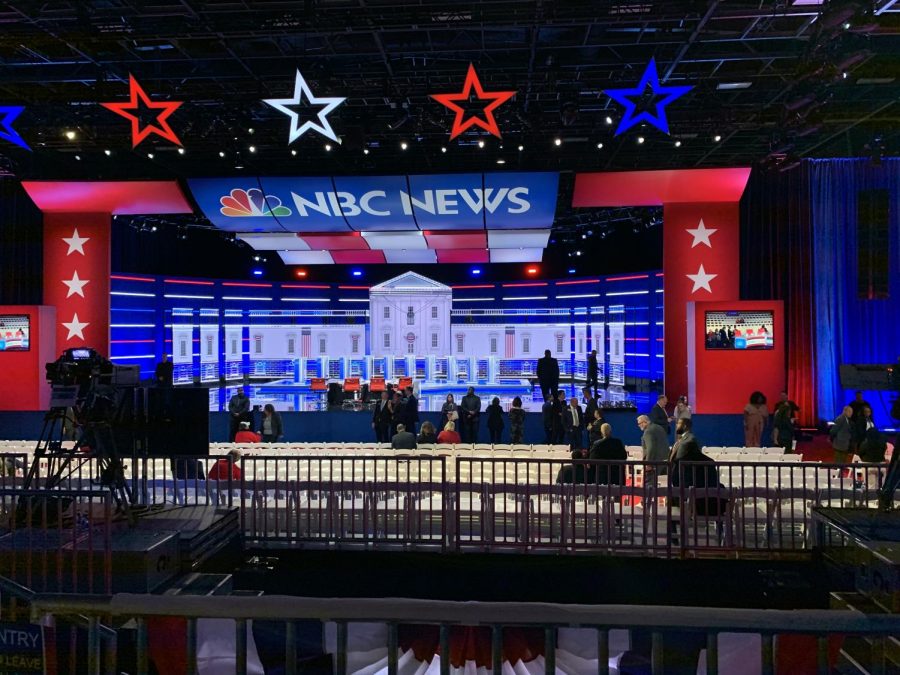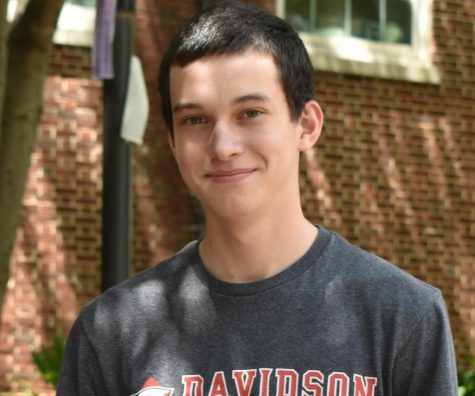Fifth Democratic Debate showcases both policy differences and party unity
Preparations take place for the Fifth Democratic Debate at Tyler Perry Studios in Atlanta. This debate highlighted contrasts among candidates but also offered the most even playing field since the primary began.
November 21, 2019
The fifth Democratic Presidential Debate held by MSNBC and the Washington Post highlighted divisions between the 10 candidates vying for the Democratic Party’s nomination.
Before the debate began, several prominent Democrats came onto the stage in the Oprah Winfrey Auditorium at Tyler Perry Studios to energize the audience. Democratic National Committee chair Tom Perez, Atlanta Mayor Keisha Lance Bottoms, U.S. Congressman John Lewis and 2018 gubernatorial candidate Stacey Abrams all made promises about retaking the state of Georgia and the nation in the 2020 election.
The Nov. 20 debate was hosted by Rachel Maddow, Kristen Welker, and Andrea Mitchell of MSNBC along with Ashley Parker of the Washington Post.
At the beginning of the debate, many candidates focused on talking points that had been outlined in previous debates. The more progressive wing of the party lead by senators Elizabeth Warren and Bernie Sanders focused on the need for systematic change while the more moderate candidates like former Vice President Joe Biden and Senator Amy Klobuchar outlined their case for electability.
Signs of disagreement between candidates started early in the debate during the section on healthcare plans and spending.
Warren, a long proponent of Medicare for All faced challenges from Senator Cory Booker and Pete Buttigieg, who argued that the nominee should “galvanize and not polarize” the American people. During the back and forth about healthcare policy, Sanders became visibly irritated over lack of moderator attention and, when eventually called on, declared: “I wrote the damn bill.”
The lowest polling candidates received the least amount of time to speak. Booker, Representative Tulsi Gabbard, Tom Steyer and Andrew Yang were the last to be called on and Yang did not get airtime until 30 minutes after the debate began.
While differences emerged across issues in the first half of the debate, many candidates chose to use their little speaking time to attack President Donald Trump on issues ranging from impeachment to foreign policy while laying off their counterparts more than in previous debates.
After the first commercial break, the candidates began focusing more on the differences between themselves and their opponents while looking less at the president’s policies.
The candidates disagreed on foreign policy, the military, family leave, housing reform, experience and the criminal justice system.
Sanders sparred with Biden over middle east policy, Booker disagreed with Buttigieg over domestic issues, Gabbard attacked Buttigieg over a lack of experience and Harris argued with Klobuchar over paid family leave. The disagreements allowed the candidates to distinguish themselves and led to some of the most noticeable one-liners of the night.
“I’m not going to go for things because they sound good on a bumper sticker and then throw in a free car,” Klobuchar said in discussing family leave with Harris.







